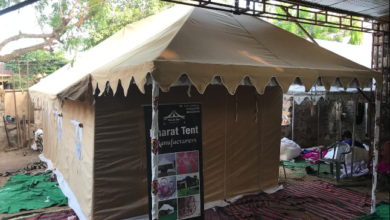The Four Core Modules of DBT Explained

Dialectical Behavior Therapy (DBT) is a powerful, evidence-based form of psychotherapy that helps people manage intense emotions, build healthier relationships, and lead more balanced lives.
Originally developed by Dr. Marsha Linehan in the late 1980s to treat individuals with borderline personality disorder (BPD), DBT has since been adapted to support those struggling with a wide range of mental health issues, including anxiety, depression, PTSD, eating disorders, and substance use.
4 Core Modules of DBT
At its heart, DBT combines cognitive-behavioral techniques with concepts of mindfulness and acceptance, offering practical skills to help people move from emotional chaos to psychological stability.
These skills are taught through four core modules: Mindfulness, Distress Tolerance, Emotion Regulation, and Interpersonal Effectiveness. Each module addresses a critical area of functioning, and together, they form a comprehensive toolkit for navigating life’s challenges.
1. Mindfulness: Cultivating Awareness
Mindfulness is the foundational skill of DBT in Vancouver and is integrated throughout all other modules. Borrowed from Eastern contemplative traditions, mindfulness in DBT is about learning to observe, describe, and participate in the present moment without judgment.
People who struggle with intense emotions often act impulsively or become overwhelmed by their thoughts and feelings. Mindfulness helps create a pause—a moment to reflect before reacting. It teaches individuals to:
- Notice what’s happening inside (thoughts, feelings, body sensations) and outside (sights, sounds, interactions)
- Label experiences accurately without attaching stories or judgments
- Practice “wise mind,” the balanced state between emotional and rational thinking
By becoming more mindful, individuals can make more intentional choices, rather than reacting out of habit or distress.
2. Distress Tolerance: Surviving the Moment
When crisis strikes or emotions spike, many people feel the urge to escape the pain—sometimes through harmful or self-destructive behaviors. The Distress Tolerance module provides skills to help individuals tolerate pain without making the situation worse.
These skills are divided into two main types:
- Crisis survival skills: Tools like distraction, self-soothing, and improving the moment help people get through short-term crises without acting impulsively.
- Reality acceptance skills: Techniques like radical acceptance and turning the mind help individuals come to terms with life situations they cannot change.
While distress tolerance does not eliminate suffering, it helps people get through tough moments safely, preserving long-term well-being.
3. Emotion Regulation: Managing Intense Feelings
Many individuals in DBT experience intense, rapidly shifting emotions that feel overwhelming and hard to control. The Emotion Regulation module helps them understand, reduce, and manage these emotional surges more effectively.
This module teaches people to:
- Recognize and name their emotions
- Understand the function of emotions (why they arise and what they signal)
- Reduce vulnerability to emotional extremes (through strategies like sleep hygiene, nutrition, and avoiding drugs)
- Increase positive emotions by building a life worth living
- Use opposite action—a technique where individuals act contrary to an unhelpful emotion to shift their mood
Emotion regulation skills help people feel more emotionally stable, which leads to improved relationships and better decision-making.
4. Interpersonal Effectiveness: Building Healthy Relationships
Strong relationships are essential for emotional health, but for those with chronic emotional dysregulation, maintaining them can be difficult. The Interpersonal Effectiveness module teaches skills to assert needs, set boundaries, and maintain self-respect while improving relationships.
Key tools include:
- DEAR MAN: A structured skill for making requests or saying no assertively while staying calm and respectful
- GIVE: A skill to maintain relationships through validation and empathy
- FAST: A strategy to maintain self-respect during challenging interactions
Whether it’s dealing with a conflict at work or setting boundaries with a loved one, these skills empower individuals to interact more effectively, without giving up their own needs or values.
Integrating the Modules: A Holistic Approach
One of the strengths of DBT is how these four modules work together. For example, a person might use mindfulness to notice rising anxiety, apply distress tolerance skills to avoid a panic attack, use emotion regulation strategies to understand and reduce anxiety, and practice interpersonal effectiveness to ask for support from a friend.
DBT therapy typically involves individual therapy, group skills training, and phone coaching, all guided by a treatment team that emphasizes validation, support, and accountability. Through this multifaceted approach, clients gradually build a life worth living—one skill at a time.
Final Thoughts
The four core modules of DBT—Mindfulness, Distress Tolerance, Emotion Regulation, and Interpersonal Effectiveness—form a practical and transformative roadmap for managing emotional distress and improving quality of life. Whether you’re struggling with mental health issues or just looking for tools to handle stress more effectively, DBT offers skills that anyone can benefit from.
If you or someone you care about is navigating emotional difficulties, consider exploring DBT with a trained therapist in Vancouver. The skills you learn may change your life.





